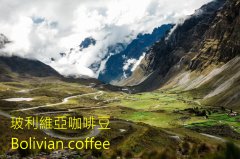Description of flavor and taste of coffee beans in batches of Congo Kavisa Lucky bid

For professional baristas, please follow the coffee workshop (Wechat official account cafe_style)
Product name: Congo Kavisa Coffee beans, God of Luck
Baking method: shallow baking
Flavor description: BlackBerry and blackcurrant aromas, embellished with aromas of black plum and fairy Hawthorn, with a distinct and unforgettable character.
Price: 300 yuan half pound Price: 500 yuan a pound
The fourth prize-winning bidding batch of the Congo region in 2017 Taste of Harvest Competition
A constellation you will like.
Aquarius, Gemini, Libra
Virgo
We return to the essence of coffee bean ingredients, find the original taste of coffee beans, and find the most primitive clean taste buds for you through the intuition of tasting natural products.
In order to maintain the freshness and quality of the products, all goods will be baked and packaged the day before shipment. You are welcome to make an appointment in advance. I will arrange your order according to the order date process.
In order to provide you with more fresh coffee beans before baking, if you need face-to-face pick-up, please book first, there is no stock on the spot.
Drink a cup of coffee that makes you happy.
People who love Kenya's AA must not miss it.
Shallow baking is a cup of supple BlackBerry juice.
Storage method: normal temperature, sealed jar
Coffee beans that can only be bought at the risk of life
Coffee beans produced in the Democratic Republic of the Congo are famous for their special flavor, but it is not easy for foreign businessmen to do business in this jungle-densely populated eastern region over the past 20 years, killing more than 5 million people.
The coffee grown in the Democratic Republic of the Congo (unlike the Republic of Congo) has a unique flavor, attracting exporters, bean roasters and retailers from all over the world, but the country is not only full of business opportunities, but also the risks brought by the war.
President Kabiyra Kabiyra is still in office for 15 years, delaying the presidential election scheduled for November until 2018, during which he wants to amend the constitution to extend his term, sparking widespread opposition and deepening the unease and fragility of the country's political situation.
Therefore, if you want to operate in the Democratic Republic of the Congo, you often have to face all kinds of death threats, kidnapping, extortion and other crimes will find foreigners; even government officials also use tax increases, forgery and other means to extort money. According to Human Rights Watch (Human Rights Watch), 175 foreigners were kidnapped and extorted last year, including several aid workers.
Crimes are often committed in coffee-producing areas.
These crimes are usually committed near coffee producing areas, but businessmen usually turn to locals to lead the way to reduce the risk of their lives. The manager of Schluter SA, a Swiss coffee company specializing in African beans, said that because of the frequent wars, he would keep in touch with the local army at any time so as not to be affected.
But such high risks are still not enough to keep out busy foreign forces, and Starbucks, the US coffee chain, invested $1 million in three years and finally put Congolese coffee beans on the shelves in March.
Small coffee merchants across America and Europe are also scrambling to connect with brokers to open a door to small farmers in Congo.
The annual output value of the global coffee market is as high as 175 billion US dollars. Boutique coffee (Specialty Coffee) begins to be widely loved by consumers, and the market expands rapidly and gradually becomes the mainstream. According to the latest estimate of the National Coffee Association (NCA), 31% of adults in the United States drink a cup of boutique coffee every day, up from 16% in 2006.
Congo's production of boutique coffee beans has soared, with the Eastern Congo Project (East Congo Initiative), a local agricultural revitalization organization, estimating that production, which was barely worth mentioning in 2008, has reached 960m tonnes a year. Coffee washing stations in South and North Kivu provinces have also gone from seven to 94 in just five years.
The risk of death will not allow foreign investment to retreat.
However, the income of boutique coffee in the country in recent years can only be learned from small farmers because the government does not have official statistics. Thanks to foreign investment, local small farmers have not only increased their income, but also increased their knowledge and planting of crops.
And the risk of death from trade opportunities is uninterrupted in the Congolese jungles.
Important Notice :
前街咖啡 FrontStreet Coffee has moved to new addredd:
FrontStreet Coffee Address: 315,Donghua East Road,GuangZhou
Tel:020 38364473
- Prev

Description of Flavor and Taste of Fine Coffee beans in Paso Anqiu Valley, Carmen Manor, Panama
For the exchange of professional baristas, please follow the coffee workshop (Wechat official account cafe_style) Panamanian Carmen Manor Paso Anqiu Valley boutique coffee beans Panama Carmen Manor Paso Ancho 2013 BOP tradition Group 5th, 2008 BOP 4th 2008 BOP 4th Coffee Review 93 points, Coffee Review 91 points National Volcan Baru volcano (Volcan Baru) West Slope Paso Anqiu
- Next

The Soul of Andes from the Roof of the World description of the flavor and flavor of Bolivian coffee beans
For the exchange of professional baristas, please follow the coffee workshop (Wechat official account cafe_style) the Soul of Andes from the roof of the world Bolivia ◇ Yungas Caranavi Bolinda Finca Don Carlos Peaberry Yonggas Karana than Don Carlos Manor perfume Queen Pearl beans 1600-1650m Bolivia Don Carlos Manor Perfume Queen Pearl Round Bean Coffee
Related
- Detailed explanation of Jadeite planting Land in Panamanian Jadeite Manor introduction to the grading system of Jadeite competitive bidding, Red bid, Green bid and Rose Summer
- Story of Coffee planting in Brenka region of Costa Rica Stonehenge Manor anaerobic heavy honey treatment of flavor mouth
- What's on the barrel of Blue Mountain Coffee beans?
- Can American coffee also pull flowers? How to use hot American style to pull out a good-looking pattern?
- Can you make a cold extract with coffee beans? What is the right proportion for cold-extracted coffee formula?
- Indonesian PWN Gold Mandrine Coffee Origin Features Flavor How to Chong? Mandolin coffee is American.
- A brief introduction to the flavor characteristics of Brazilian yellow bourbon coffee beans
- What is the effect of different water quality on the flavor of cold-extracted coffee? What kind of water is best for brewing coffee?
- Why do you think of Rose Summer whenever you mention Panamanian coffee?
- Introduction to the characteristics of authentic blue mountain coffee bean producing areas? What is the CIB Coffee Authority in Jamaica?

